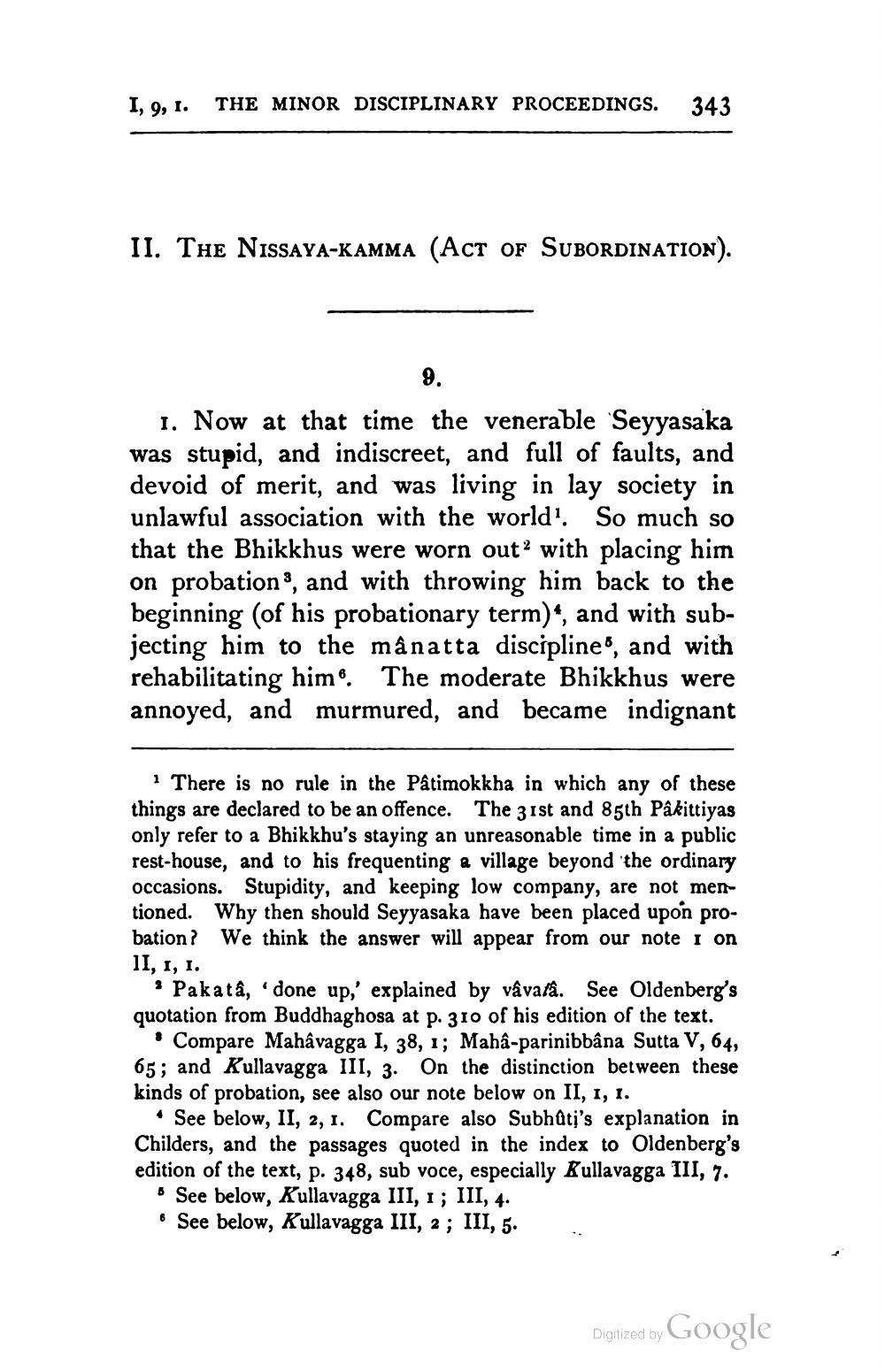________________
1, 9, 1. THE MINOR DISCIPLINARY PROCEEDINGS.
343
II. THE NISSAYA-KAMMA (ACT OF SUBORDINATION).
1. Now at that time the venerable Seyyasaka was stupid, and indiscreet, and full of faults, and devoid of merit, and was living in lay society in unlawful association with the world'. So much so that the Bhikkhus were worn out with placing him on probation, and with throwing him back to the beginning (of his probationary term)", and with subjecting him to the mânatta discipline", and with rehabilitating him. The moderate Bhikkhus were annoyed, and murmured, and became indignant
1 There is no rule in the Pâtimokkha in which any of these things are declared to be an offence. The 31st and 85th Pâkittiyas only refer to a Bhikkhu's staying an unreasonable time in a public rest-house, and to his frequenting a village beyond the ordinary occasions. Stupidity, and keeping low company, are not mentioned. Why then should Seyyasaka have been placed upon probation? We think the answer will appear from our note i on II, 1, 1.
* Pakata, done up,' explained by vâvata. See Oldenberg's quotation from Buddhaghosa at p. 310 of his edition of the text.
. Compare Mahavagga I, 38, 1; Maha-parinibbâna Sutta V, 64, 65; and Kullavagga III, 3. On the distinction between these kinds of probation, see also our note below on II, 1, 1.
See below, II, 2, 1. Compare also Subhâti's explanation in Childers, and the passages quoted in the index to Oldenberg's edition of the text, p. 348, sub voce, especially Rullavagga III, 7.
See below, Kullavagga III, 1 ; III, 4. • See below, Kullavagga III, 2 ; III, 5.
Digitized by
Digitized by Google




